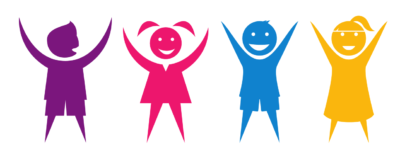Communication Skills. The core skill of Human Evolution

Communication has only helped human beings become so developed and organized. We see other animals do communicate, but not as efficiently as human beings, as we can speak, write, express. Human beings are able to share ideas, express themselves. That’s why only we are able to have all the technology, good lifestyle, businesses and what not!
But many times, when we are not able to communicate well, it leads to clashes, misunderstandings, quarrels and conflicts. So, we need to communicate well.
Reason – Not having good education around communication skills, required exposure and practice and knowledge of fundamentals. And childhood is the best age to start learning this key skill, because our patterns have already been made by adulthood which are difficult to change.
Communication is not merely the ability to speak well, or have fluency in English. It is a very wrong perception. Communication is much more than that. Communication means, expressing one’s thoughts, feelings, ideas, opinions & talks to the other people well so that they understand it well without misunderstanding and get the sense what we want to tell them.
It’s not only limited to speaking skills, but writing, actions and even texting is much essential modes of communication which we all should learn
Key points which we should expose children to, at home, using activities –
Ensuring Respect & Humility – Letting children know the right cause-effect of this fundamental is very important. So that they consciously apply the same. No one likes to be disrespected or humiliated. When we talk disrespectfully, without humbleness, we are making the other person angry, confronting and against us. In that scenario, the other person might not be in a position to understand us. So, to make them comfortable, we should always communicate respectfully, with decency and humility, be it friends, enemies or any stranger. For eg – When some autowala has hit your car, how would you communicate? Would you be angry and abuse him, or communicate your resentment but humbly and politely?
Applying Empathy & Understanding – Empathy is a powerful tool. By empathy, we also try to understand the other person well. If we don’t understand others, and just say our thing, it’s not communication, but one way dictation. If we want others to understand us, we need to understand others as well. Also concepts of active listening and empathetic listening can only be applied if empathy is practiced. Good examples from day to day life, can help children realize this important fundamental
Motivating Clarity of Thoughts – While communicating, being clear what we want to convey and not juggling around, is important. We can ask children and motivate them to take some time and structure their thoughts well. We should demotivate going round and round without touching the main gist of the message. Afterall, the purpose of communication is to give the other person clarity, and not further confuse them.
Structuring the thoughts and words; being concise and crisp – Structuring our thoughts is essential, like a storyline, what to communicate first, and what next and what next, so that there is a sequence in our communication. Communication is like story telling, where if the sequence is not there, we might not understand the story well. Other people can only understand better, if we structure our thoughts and make it easy for others to comprehend so they are able to get the sense out of it. It may take practice. We can start with article writing and then asking children to speak on something but first taking time to structure the thoughts
Tell children to appropriate words which other people can understand – Children must be taught at an early age to speak as per their listener. Selecting words as per the recipient. Since we are talking to make the other person understand, and not just to utter or flaunt our vocabulary, we have to make it easy and simple. This tendency has to be nurtured
Being relaxed & confident during communicating – Children sometimes face many struggles in their minds, so we need to appease them and promote being relaxed, not being excited or anxious while communicating, having clarity of thoughts and being confident while communicating, so that they get on the right track. It will take some time initially, but that’s how the right patterns do develop. Children should be told that do not think about the other person, just be within themselves, focus on the talk and how we are communicating. When we think about other people, or are anxious or fearful, we will fumble and not put across the right message with right clarity and right structuring
Being appreciative, polite and friendly – Children need to learn to make other people comfortable and not aggressive. This can only be achieved if we also appreciate the other person, by being polite, gentle, and friendly with them. Scenario based questions can be applied here, putting them in others shoes. How do you feel if someone appreciates you, is polite and is friendly with you? Even if the other person is our enemy, we still will be light hearted and willing to understand the communicator in that scenario. We should make one point clear in the minds of children that clashes usually happen if we don’t follow these tips.
Being a good listener – Communication is not only about talking. To be a good communicator, we need to be a good listener. Why? Because if we don’t listen properly and empathetically to the other people, we will not be able to understand them well, hence we will never arrive at an agreement. Children should be exposed to concepts of active listening, and made to practice that. Being a good listener is the foundation of being a good communicator or even an orator
Children should be told – ‘No language barrier for you. Whatever you are comfortable in, speak’ – Many times, we stick to languages like English only for communicating. But if the other person can understand some other language that we know, but we are not very comfortable with English, we should be free to use that language. We need not confine ourselves to English only. Afterall, it’s not what language we speak, but what understanding the other person gets from us. Children should first learn the fundamentals of learning, than being burdened by English if they are not comfortable with it. Once fundamentals are strengthened, children can start practicing English speaking afterwards, as it can be learned at any time. For ex – Virat Kohli
Ask children not to have prejudgements or biases – Sometimes we have biases in mind so we make judgements about others. When we have preconceived notions, we can not understand the other person’s message well and will think only what we wanted to think. Prejudice and bias is the new concept for children, so let’s expose them to this human nature from beginning, using good counseling and conversations with them
Communication is an art, and some dedicated focus can help children get over the mind’s complexes, wrong patterns and develop required confidence levels.
